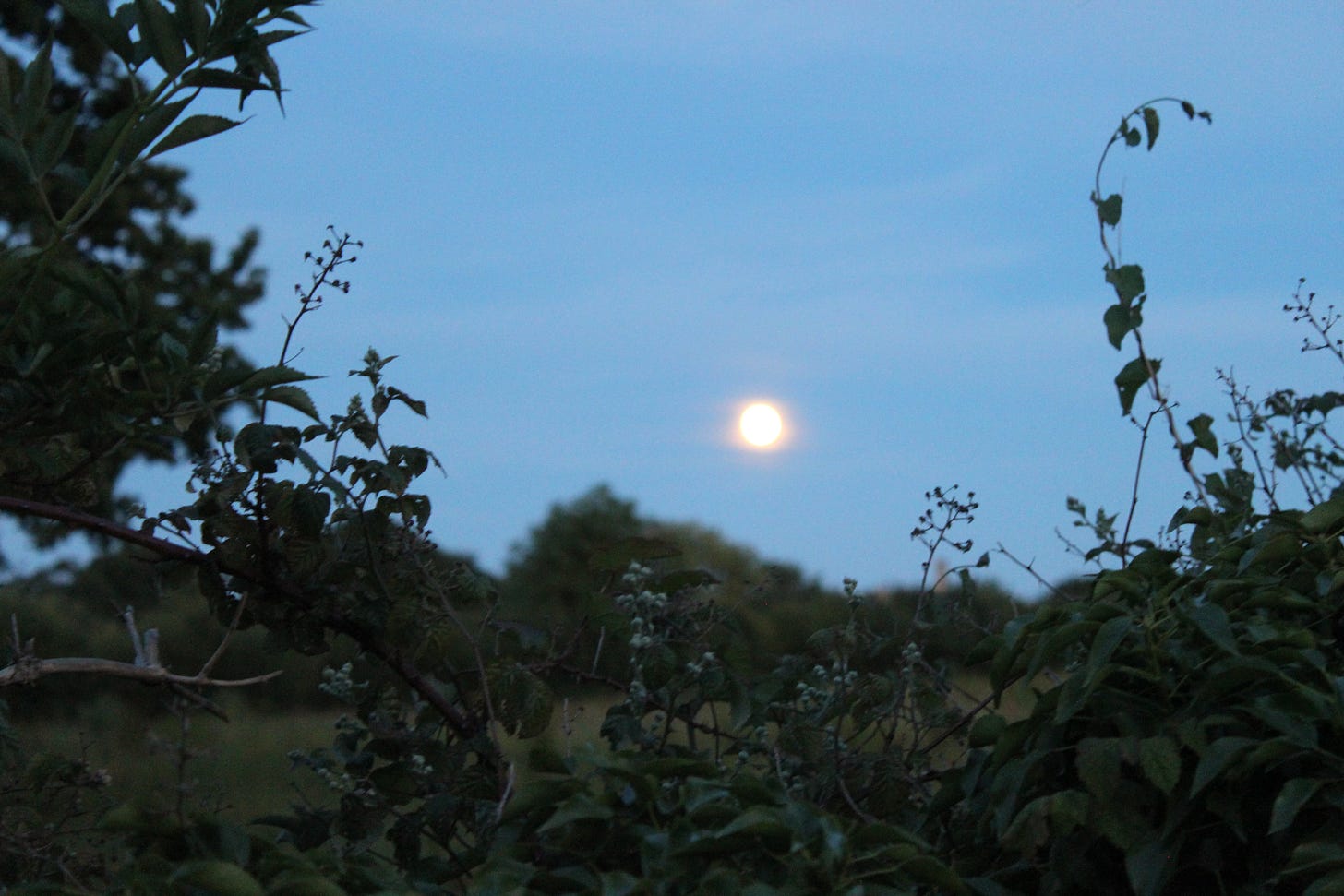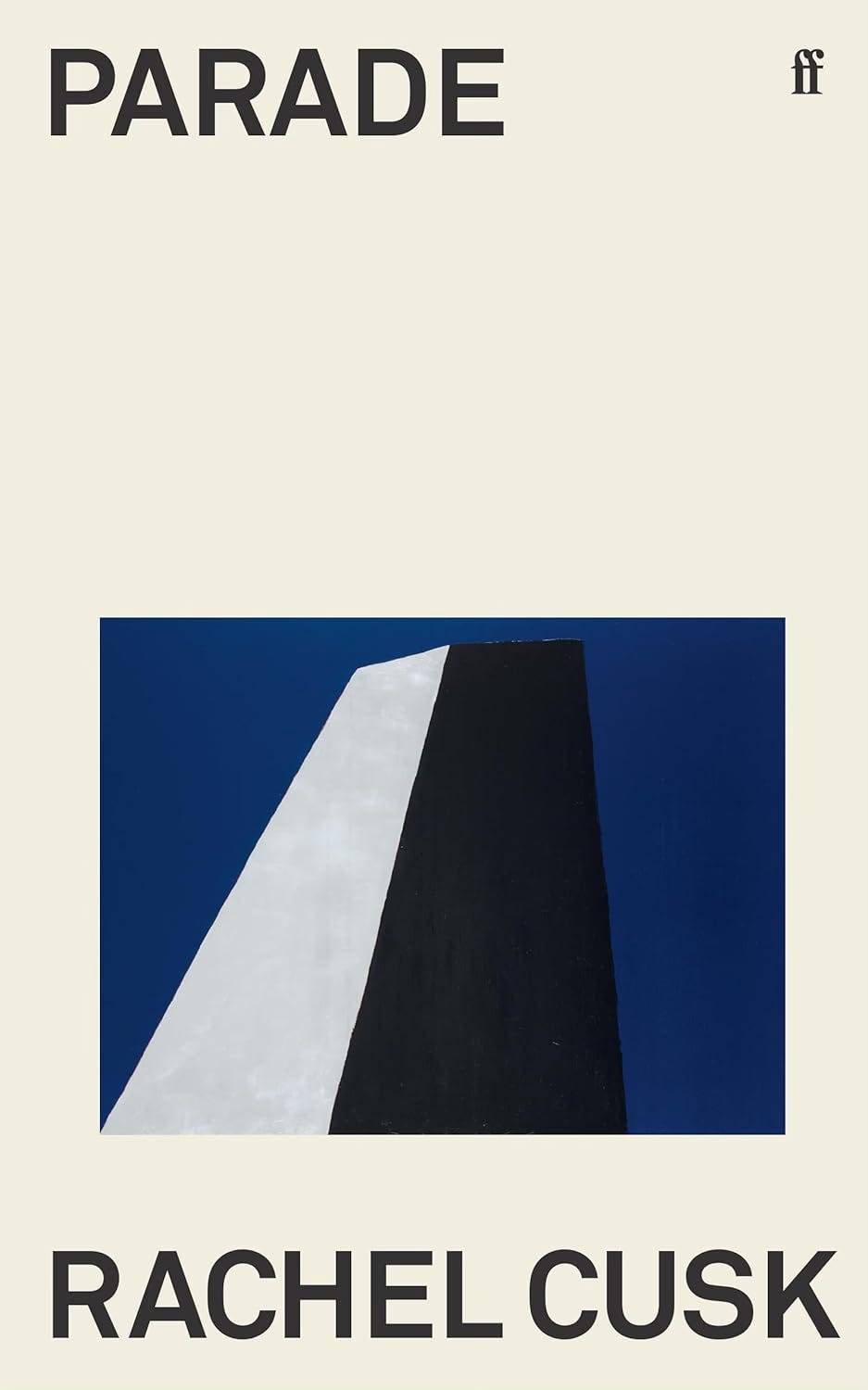I was lucky enough to grow up in Wiltshire, home of many prehistoric sites and a mild and placid eeriness best captured, to my mind, by the work of the artist David Inshaw, founding member of the Brotherhood of Ruralists, who has lived in the county for many years.
This week, Just Stop Oil, a protest organization formed in 2022 that purports to be petitioning the government to stop new fossil-fuels licenses, attacked Stonehenge, the legendary Neolithic stone circle, using orange-dyed cornflour. Footage shows a couple of people—perhaps tourists—trying to stop the activists from spraying the megaliths.
There was immediate and international outrage at this incident—no doubt intended by the group, which timed its action for the day before the Summer Solstice, when hundreds of “pagans” and others visit. Two people were arrested by Wiltshire police. I don’t know what offense they might be charged with of course, but the Ancient Monuments and Archaeological Areas Act of 1979 states:
A person who without lawful excuse destroys or damages any protected monument situated in England shall be guilty of an offense if the person—(a) knowing that it is knew or ought to have known that it was a protected monument; and (b) intending intended to destroy or damage the monument or being was reckless as to whether the monument would be destroyed or damaged.
Just Stop Oil has claimed that the substance they sprayed on the stones will wash away, though some have wondered about damage to rare lichen on the stones, and the activists couldn’t possibly have understood what the damage might have been (they arguably behaved recklessly). “Raising awareness” at all costs, including alienating and angering vast numbers of people, is, we must concede, one way of getting your message across.
Activists would no doubt argue that any damage to art or monuments, however ancient or beloved, pales in the face of the horror of what they see as the destruction caused by humanity to the environment. They often use a skull logo—irritatingly graffitied around the country—to highlight what they see as the deadly nature of contemporary energy policies.
Damage and desecration can be symbolic as well as actual. The strategy of targeting beauty and history is part of a growing neo-iconoclasm, in which remnants of the past are treated as objects to be destroyed, hidden, and defaced. The unstated premise seems to be that by destroying historical things, one can destroy history itself—the better to start again. This is a mindset that encourages spirals of violence—because the activists’ sense of urgency in the face of injustice, perceived or real—is more important than anything else, and everything that dares to persist, that reveals the complexity of the past, is fair game.
We have seen various statues and paintings attacked in recent years—in March, a painting of Lord Balfour was slashed by a pro-Palestinian activist, though no arrests have yet been made. I wonder if attacking Stonehenge—a sacred English site, regardless of whether one is a “pagan,” Christian, or secular liberal—will prove a step too far for many. We celebrate the achievements of past protest movements—or we oppose everything civil rights stood for—but either way, patience with these misguided contemporary gestures is surely fraying.
Latest pieces in Compact
We began the week with Christopher Porter, a member of the US National Intelligence Council from 2019 to 2022, who wrote about the deep state in the wake of potential threats from China and technological changes: “A new Cold War will be fought as much in one of hundreds of laboratories and global manufacturing bases as in any kinetic battlefield or dark-alley spy game.”
David Moulton reflected on shifts in the discussion of religion, politics and science over the past few decades: “With the so-called Great Awokening that took off during President Barack Obama’s second term and accelerated during the Trump years, it became much harder to maintain that secularization necessarily led to a more rational society.”
Valerie Stivers tackled Rachel Cusk’s new work, Parade. Examining the class dimension of Cusk’s work, Stivers argued that “the intellectual elite, of which she and her readers are members, prefers to deny that womanhood exists as a category with meaningful content. The elite also still pretends that a woman can be a mother and have a career with no losses.”
Hamilton Craig described various intellectual misunderstandings in the context of political polarization: “The misapprehensions of radical intellectual camps—both of their own relative influence and that of the ‘other side’—fuels much of today’s online and culture-war antagonisms.”
Our weekend long-read is by Robert Huddleston on the life and death of ideas in the liberal context, which he sees as fraying:
Beyond its pervasive materialistic and individualistic emphasis, much of the institutional habitus of liberal culture in recent years has focused on nurturing cultures of activism, protest, and dissent regarding norms and traditions. Such movements have included some laudable efforts to redress both past and present injustices. But they also seem to have led many to disregard or disengage from the virtues enshrined in Western tradition, and even to condemn that tradition as irredeemable.
We might well ask what values are being enacted by the Stonehenge protestors—are they liberal ones or something other, more aligned to outbursts of fanaticism and iconoclastic destruction?
Nina Recommends
Katharina Volckmer’s 2020 debut novel, The Appointment (Or, The Story of a Cock), is brutally funny and possibly the only “trans” narrative (in a manner of speaking) that admits of the dark, familial, and psychosexual side of the desire to “change sex.” Consisting of a single, increasingly deranged monologue told by a German woman to a Jewish plastic surgeon in London, who doubles, for the purposes of the narrator, as a psychoanalyst/confessor, the narration ranges from suicide to German guilt, sex robots to British manners, love to religion to art to being an unwanted daughter. Poetic lines smash up against the most sordid insights into human nature. Freud’s penis envy meets postwar guilt with a sociopathic vigor.
Compact’s editorial fellow, Stephen G. Adubato, is launching a zine on July 11 at the Rose in Chelsea. Details here.









